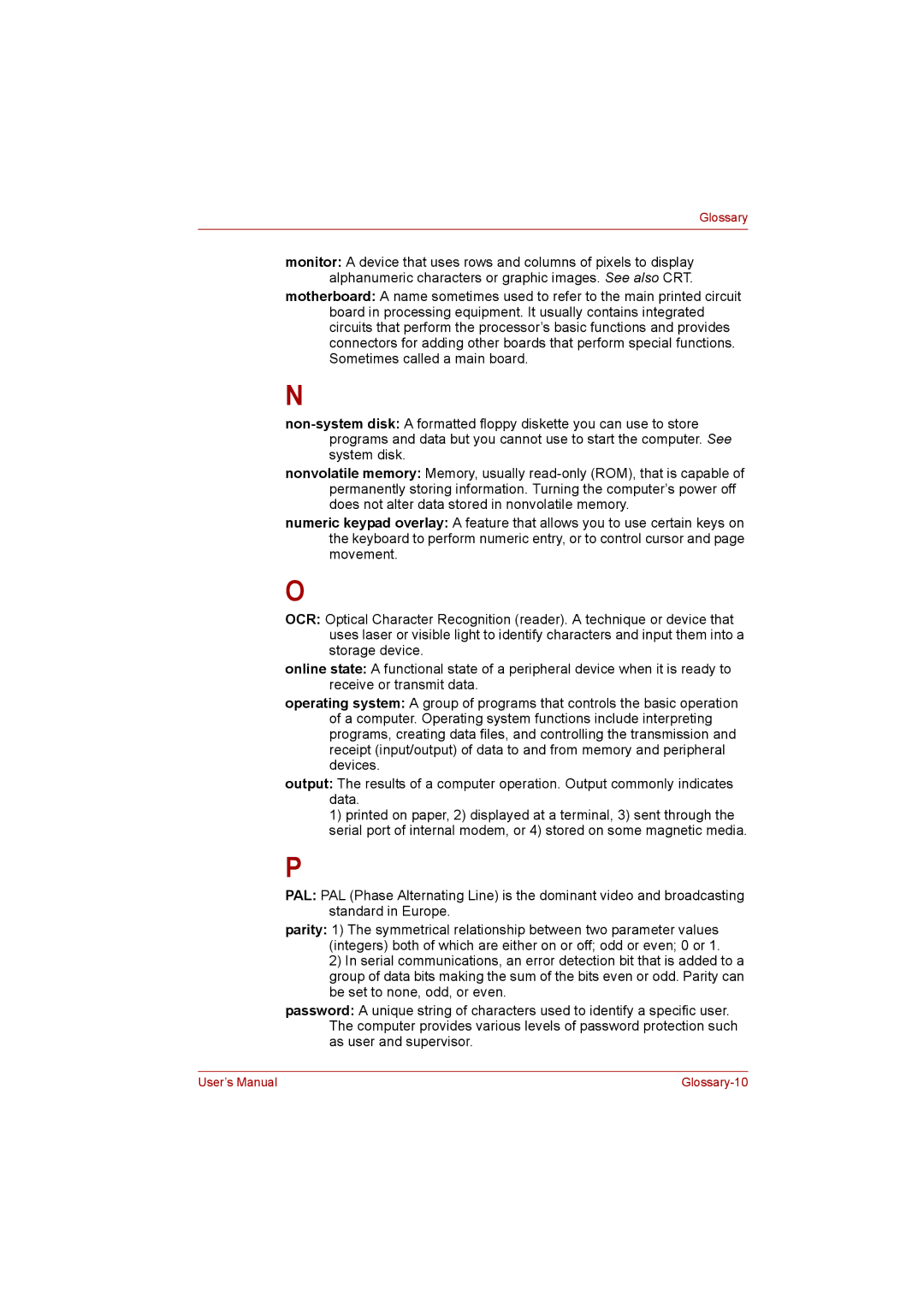
Glossary
monitor: A device that uses rows and columns of pixels to display alphanumeric characters or graphic images. See also CRT.
motherboard: A name sometimes used to refer to the main printed circuit board in processing equipment. It usually contains integrated circuits that perform the processor’s basic functions and provides connectors for adding other boards that perform special functions. Sometimes called a main board.
N
nonvolatile memory: Memory, usually
numeric keypad overlay: A feature that allows you to use certain keys on the keyboard to perform numeric entry, or to control cursor and page movement.
O
OCR: Optical Character Recognition (reader). A technique or device that uses laser or visible light to identify characters and input them into a storage device.
online state: A functional state of a peripheral device when it is ready to receive or transmit data.
operating system: A group of programs that controls the basic operation of a computer. Operating system functions include interpreting programs, creating data files, and controlling the transmission and receipt (input/output) of data to and from memory and peripheral devices.
output: The results of a computer operation. Output commonly indicates data.
1)printed on paper, 2) displayed at a terminal, 3) sent through the serial port of internal modem, or 4) stored on some magnetic media.
P
PAL: PAL (Phase Alternating Line) is the dominant video and broadcasting standard in Europe.
parity: 1) The symmetrical relationship between two parameter values (integers) both of which are either on or off; odd or even; 0 or 1.
2)In serial communications, an error detection bit that is added to a group of data bits making the sum of the bits even or odd. Parity can be set to none, odd, or even.
password: A unique string of characters used to identify a specific user. The computer provides various levels of password protection such as user and supervisor.
User’s Manual |
|
